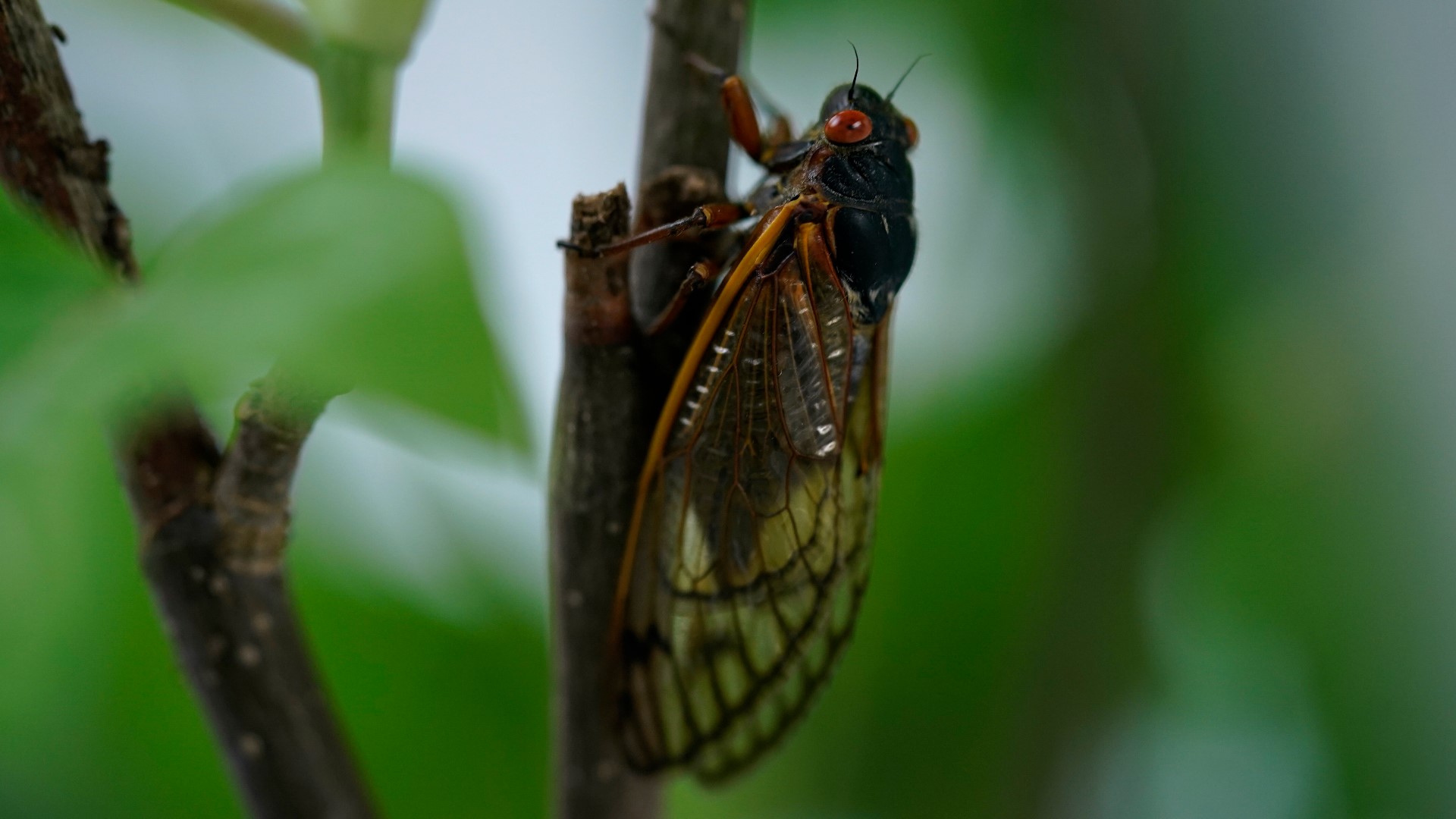MISSOURI, USA — Most of what humanity knows about cicadas was thanks to a newspaper column nearly 200 years ago.
Newspaper readers in the 1840s would have seen something similar to the following: Cicadas will begin to leave the ground about the 20th of May, a few days earlier or later, according to the weather. If you see them, please send me a notice. For those who send me notice, I'll be happy to return their stamps.
The column's author was Gideon Smith, now considered the father of thirteen- and seventeen-year periodical cicada research. Smith, a medical doctor, was already considered a cicada expert in 1839 after he published "Notes on the Locusta," the first standalone publication on periodical cicadas containing the first color illustrations of the insects. However, he was hungry for more.
Smith was limited in where he could travel for cicada research, so he used his previous work experience at an agriculture newspaper to have his research travel for him. Smith would write cicada-focused columns for national newspapers, which would get picked up by local papers and read by millions of people.
The letters Smith got from readers of the column would lead to numerous cicada discoveries, including the existence of 13-year periodical cicadas and all of the known broods across the United States.
Gene Kritsky, an entomologist at Mount St. Joseph University in Ohio, used Smith as his muse when he created Cicada Safari, the world's next step in the cicada citizen science tradition.
Cicada research's evolution from door knocks to smartphone app
Kritsky, who started researching cicadas in 1976, created the free Cicada Safari app in 2019 after years of workshopping ways to gather data on the insects. He tried knocking on doors, asking people to email, and even setting up a "cicada hotline" for people to call, but those projects fell through due to either unsustainable data collection or information overload.
"I got so many calls on the first day of emergence that it broke my answering machine," Kritsky said. "Fast forward 17 years, I asked people to send me an email. On the first day of emergence, I was getting an email a minute."
The biggest problem with emails and phone calls is that Kritsky wasn't able to see the cicadas and verify whether they were actually periodical cicadas or not. Then, the smartphone was created. With the technology's new ability to instantly share pictures and locations, Kritsky and other university members sat down and sketched out what would become Cicada Safari.
Cicada Safari: A free app and the world's largest citizen scientist effort for periodical cicada research
Smartphone users can download Cicada Safari for free from either Apple's app store or the Google Play store.
The app allows people to help map periodical cicadas, from early risers to peak emergence. With the push of a couple buttons, app users can take pictures of cicadas they see and geolocate them, adding to a national database of cicada sightings and helping continue ongoing cicada research.
The app was first tested with 2019's small Cicada Brood VIII emergence in Pennsylvania and Ohio. The university team got the most results, however, a year later when mapping the small Cicada Brood IX.
"That's when the app really showed its worth," Kritsky said. "Brood IX is a small brood, only like two or three states ... Not only did we get 9,000 Brood IX records, we got records for four other broods with cicadas coming out off-cycle. We never thought about looking 500 miles away for cicadas when they weren't supposed to be there. That was major."
Ever since, the app has been a boon for the science community looking to understand more about how the mysterious insects work.
Top St. Louis headlines
Get the latest news and details throughout the St. Louis area from 5 On Your Side broadcasts here.

